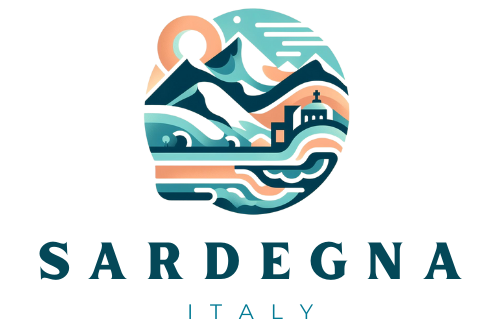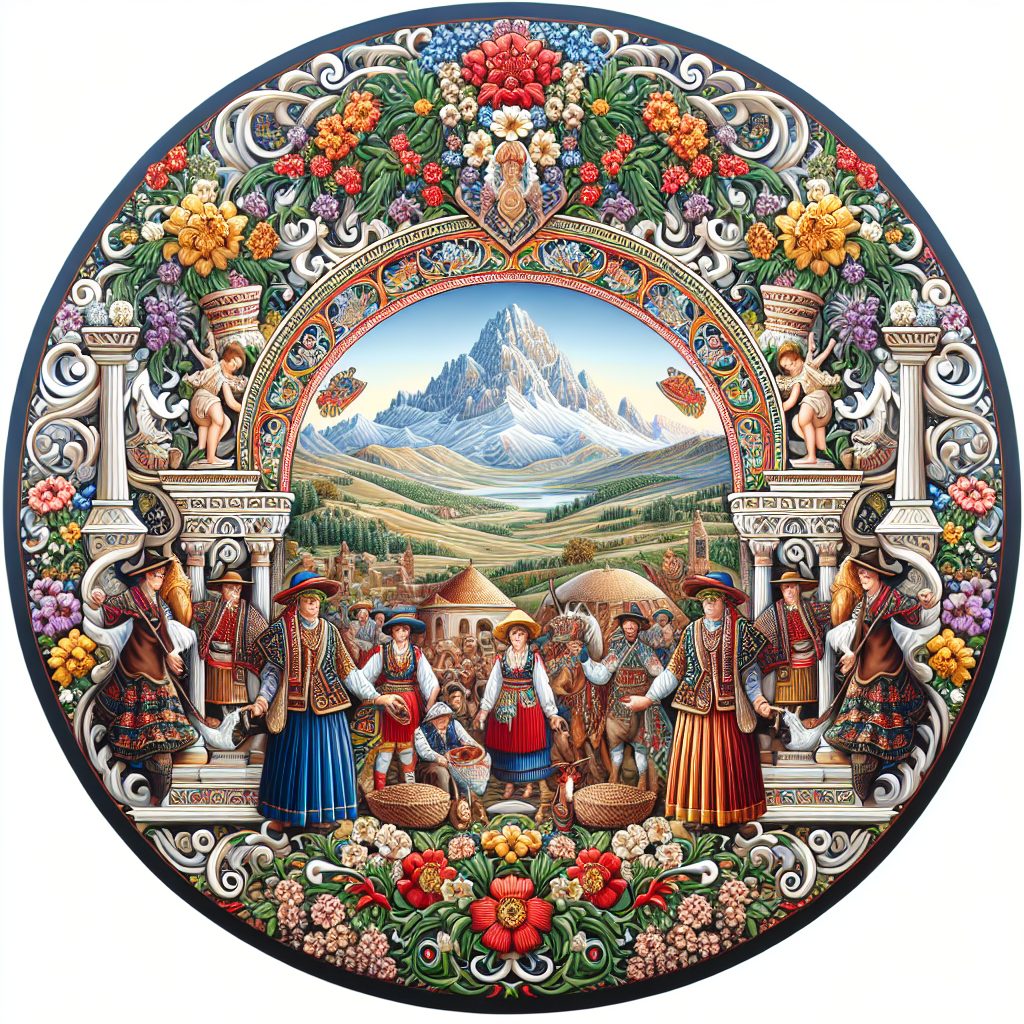Sardinian language expressions have a rich history and unique characteristics that set it apart from other languages. Derived from the Romance language family, Sardinian is spoken by the people of Sardinia, an island located in the Mediterranean Sea. This linguistic treasure is known for its distinct dialects, phonetic peculiarities, and extensive vocabulary. It reflects the diverse cultural influences that have shaped the island throughout its history.
This language holds a significant place in Sardinian culture and identity, serving as a means of communication and expression for its people. The Sardinian language has deeply rooted historical ties and has survived centuries of foreign rule and assimilation attempts. Its distinct features, such as its use of phonetic sounds and unique vocabulary, provide linguists and language enthusiasts a fascinating glimpse into the island’s cultural heritage.
In the upcoming sections, we will delve into the key takeaways of Sardinian language expressions. Exploring its vocabulary, grammar, and phrases, we will discover the intriguing aspects that make this language so captivating. From its ancient origins to its relevance in modern-day Sardinia, we will explore the impact and significance of Sardinian language expressions in the next part of this article. Stay tuned to unravel the secrets of this fascinating linguistic gem.
Key Takeaways
1) Sardinian, an ancient Romance language spoken on the island of Sardinia, is remarkably different from Italian, with its unique expressions, grammar, and pronunciation.
2) The Sardinian language exhibits a deep connection to the island’s historical and cultural heritage, containing many archaic words and expressions that reflect its long-standing roots.
3) Sardinian idioms provide fascinating insights into the island’s traditional practices, history, and natural environment. They often convey a strong sense of community and pride in local customs and traditions.
4) Some Sardinian expressions are related to daily life and work, reflecting the island’s agricultural past. Others capture the islanders’ strong connection to nature and their intimate relationship with the surrounding sea and mountains.
5) Despite its long and rich linguistic history, the Sardinian language faces challenges in the modern era, with a decline in fluency among younger generations. Efforts are being made to preserve and promote Sardinian as an essential part of the island’s cultural identity.
Sardinian Language Expressions: Unraveling the Linguistic Richness of Sardinia?
Sardinian Language Overview
The Sardinian language, native to the Italian island of Sardinia, is a Romance language with its roots deeply embedded in the island’s history and culture. Known for its linguistic diversity and uniqueness, Sardinian boasts several different dialects that make it a fascinating linguistic subject. Let’s delve into the various aspects of Sardinian language expressions and discover the richness they bring.
Main Dialects of Sardinian
Sardinian encompasses several distinct dialects, each with its own unique expressions and variations. The main dialects include:
- Logudorese: Spoken in the central part of Sardinia, Logudorese is one of the most widespread dialects, known for its rich vocabulary and melodic sound.
- Campidanese: Predominantly spoken in the southern regions of Sardinia, Campidanese features notable phonetic differences compared to other dialects.
- Gallurese: Found in the northernmost region of Sardinia, Gallurese displays strong influences from the nearby Corsican language.
- Nuorese: Commonly used in the eastern part of Sardinia, Nuorese exhibits distinct lexical and phonetic traits.
Phrases and Expressions in Sardinian
Sardinian language expressions encompass a wide range of everyday phrases, idiomatic expressions, and proverbs. Here are some noteworthy examples:
- “Ciao! Comenti est?”: Translating to “Hello! How are you?”, this common greeting demonstrates the warm and friendly nature of the Sardinian people.
- “Sos medas ligadas an sa tasi?”: This question means “Are the apples in season?” and reflects the importance of agriculture in Sardinia.
- “Non segui su cacu a masoni”: This colorful expression translates to “Don’t follow the rooster in the moonlight” and advises against blindly imitating others without thinking.
- “Sa die ti pisci!”: Literally meaning “Go pee on yourself!”, this phrase is a lighthearted way of telling someone to leave you alone.
- “Su Casteddu est bellu comenti Parigi”: Comparing the beauty of Cagliari, the capital city of Sardinia, to that of Paris, this expression reflects the islanders’ pride in their hometown.
Influences and Preservation Efforts
Sardinian language expressions bear witness to the island’s rich history and have been influenced by various civilizations, including Phoenicians, Romans, Carthaginians, and Spanish. Despite external pressures affecting the continuity and vitality of the language, Sardinians have made commendable efforts to preserve and promote their linguistic heritage. Several cultural associations, educational programs, and initiatives have been established to safeguard the Sardinian language for future generations.
Exploring Sardinian Language further
If you’re intrigued by the Sardinian language and would like to delve deeper into its unique expressions and linguistic nuances, consider the following tips:
- Engage with Native Speakers: Language learning often thrives through immersion. Seek out Sardinian communities or language exchange platforms where you can interact with native speakers to enhance your understanding and practice.
- Online Resources: Various websites and forums offer comprehensive resources on the Sardinian language. Consult these platforms for learning materials, sample sentences, and grammar explanations.
- Travel to Sardinia: Immerse yourself in the local culture by visiting Sardinia. Interact with locals, attend cultural events, and explore the island’s linguistic heritage firsthand.
- Language Courses: Look for language courses specifically focused on Sardinian. Some universities and language centers offer classes or online courses to help you learn and appreciate the language.
Frequently Asked Questions
1. How many people speak the Sardinian language?
The exact number of Sardinian speakers is difficult to determine, but it is estimated that around 1.3 million people speak the Sardinian language.
2. Is Sardinian a recognized language?
Yes, Sardinian is recognized as a co-official language in the Italian region of Sardinia, alongside Italian. However, its official recognition and protection are still limited.
3. Is Sardinian similar to Italian?
While Sardinian and Italian share some similarities due to historical influences, they are distinct languages. Sardinian has its own unique grammar, vocabulary, and pronunciation.
4. Can I learn Sardinian online?
Yes, there are online resources and courses available for learning Sardinian. These resources can help you grasp the basics of the language and improve your proficiency.
5. Are there different dialects of Sardinian?
Yes, Sardinian dialects vary across different regions of Sardinia. The main dialect groups are Campidanese, Logudorese, and Gallurese, each with its own characteristics.
6. Can Sardinian be written in the Latin alphabet?
Yes, Sardinian is typically written using the Latin alphabet, although it may have some variations in spelling and pronunciation compared to Standard Italian.
7. Are there any Sardinian language preservation efforts?
Yes, there are various organizations and initiatives dedicated to preserving and promoting the Sardinian language. These efforts include the establishment of language schools, cultural events, and publications.
8. Can learning Sardinian help me understand other Romance languages?
Yes, learning Sardinian can provide a foundation for understanding other Romance languages, particularly those spoken in Italy, such as Italian, Sicilian, and Corsican.
9. Are there any Sardinian language expressions unique to the culture?
Yes, Sardinian has a rich cultural heritage, and there are numerous expressions, proverbs, and idioms that are unique to the Sardinian language and reflect the island’s traditions and customs.
10. Is Sardinian an endangered language?
Yes, Sardinian is considered an endangered language due to the decreasing number of speakers and the influence of Italian. Efforts are being made to revitalize and preserve the language.
Final Thoughts
Exploring the beautiful expressions and unique linguistic features of the Sardinian language is an enriching experience. It not only allows us to delve into the fascinating cultural traditions of Sardinia but also highlights the importance of language diversity. Preserving and promoting the Sardinian language is vital for maintaining the cultural identity of the Sardinian people and fostering a greater appreciation for linguistic heritage. Whether you are a language enthusiast or someone interested in the rich cultural tapestry of Sardinia, learning more about Sardinian expressions can be a rewarding endeavor.
By embracing and learning the Sardinian language expressions, we can contribute to the vitality and survival of this beautiful language while also gaining insights into the historical and cultural richness of Sardinia. Let us celebrate and cherish the linguistic diversity that Sardinian offers, and together, ensure its continued existence for future generations to come.






